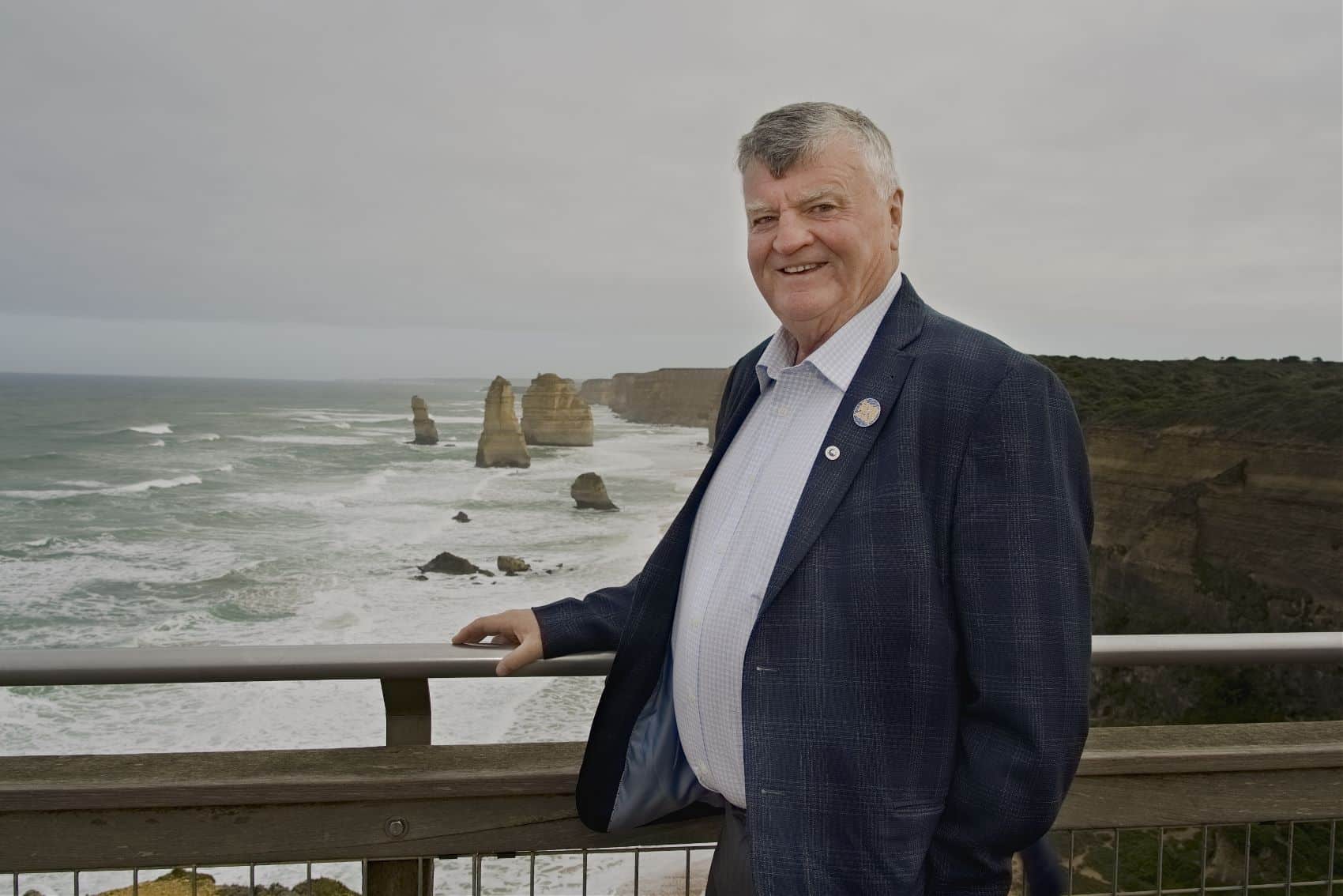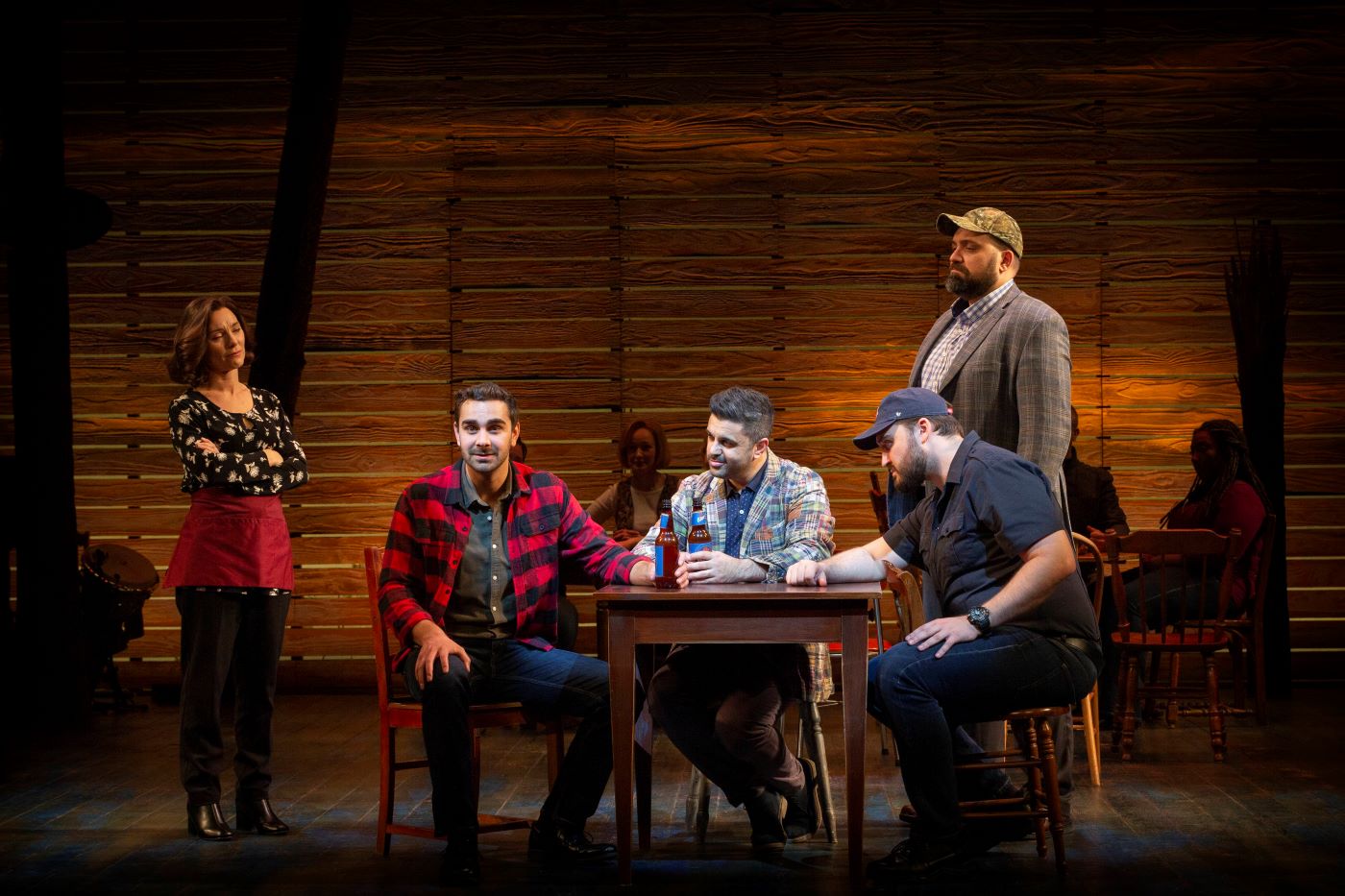In the darkest of times, the smallest gesture of humanity can provide a light. One small town in Canada did just that for thousands of stranded passengers following the September 11 attacks in 2001. Come From Away tells the story of Gander, the people stranded there, and the importance of human connection, at Canberra Theatre Centre from 8 June to 9 July.
The renowned play reimagines the events that happened when the town accepted passengers from planes for five days. The story is full of song, and light-hearted moments in the backdrop of the unfolding tragedy as the passengers and townspeople come together.
On 12 September 2001, Australians woke up to TV news replaying footage of the Twin Towers collapsing, and reports of the rising body count. The attack on New York occurred overnight for us, but the long day was continuing in the US and Canada.
For Gander, a small town in Newfoundland, they didn’t expect to play a major role in the tragic events they were hearing about, says Mayor of the time, Claude Elliott. That was until the US shut down their airspace and neighbour Canada volunteered to house any planes still in the air.
“Then we knew that we would have a busy day because Gander is a crossroad. So, we knew we would have some traffic, didn’t know how many; initially we were told to probably expect 200 aircraft to land at our airport,” Mr Elliott says.
Fortunately for everyone involved, 200 planes didn’t land in the small town. Mr Elliott says they ended up with around 7,000 passengers and crew. Initially believing the planes would be on their tarmac for only a few hours, as the day drew on and news coverage mentioned widespread terrorist attacks, Mr Elliott had the feeling they wouldn’t be leaving anytime soon.
“The worst-case scenario, they were coming off the planes and we had 7,000 people, 500 hotel rooms, so we knew that logistically we were going to have a bit of a problem,” he says.
The whole community came together to set up the Emergency Centre. Mr Elliott says they brought in all the government departments, the Salvation Army and anyone who had a building.
“We asked them how many people they could take if need be. So, we knew before the first plane came off, we knew where they were going we were prepared,” says Mr Elliott.

He says the length of time passengers spent aboard the plane helped them prepare, with the last plane disembarking after 28 hours on the tarmac. Knowing that they would have been running low on food, the Salvation Army assembled 4,000 volunteers who greeted the passengers with a lunchbox containing juice, a sandwich and some fruit.
“We woke up in the morning with 9,000 people; when we went to bed, we went to bed with 16,000. It was quite a jump in population, you know. Everybody was looked after, everybody was fed, and clothed and everything.”
Technology has evolved in the past 20 years, and although it’s hard to believe now, Mr Elliott says most of the passengers didn’t hear about the events that were unfolding in New York City and Washington DC until their redirected flights landed.
“They were glued to the TV for a long time, trying to grasp what had happened, especially the people from the US; their country was under attack, their family members were killed, they had sons and daughters working in New York,” he says.
Over the coming days, the passengers slept, ate and prayed together while the community tried their best to keep them entertained. The former mayor says they took the visitors on bus tours to see the local sites, they were taken to see whales – anything to help keep their minds off what was happening. Even though they weren’t meant to, a lot of the community members opened up their homes for the stranded passengers to visit or stay.
“It’s just our way. We all go back to my grandfather’s day and probably back to his grandfather’s day, we survived by helping each other. It was how we survived, by helping each other. Whether it was your neighbour, your family or a complete stranger, when somebody was in need you help them.”
Coming from over 90 different countries, many of the visitors weren’t sure what to make of the Newfoundland kindness. Mr Elliott says they kept on asking if ‘They were for real?’. However, they soon realised that they were in fact real, kind-hearted folk who didn’t want anything other than to help.
We could all take a page out of the book of Gander; Mr Elliott believes that the main thing lacking in our world today is love and compassion. He says that we need to lean on one another, respect each other, and just love one another as brothers and sisters.
“I think we can have different opinions; me and you can disagree on a lot of things, but the one thing at the end of the day that I will do, I will bring you into my home and I will feed you and clothe you and give you a bed to sleep in, even though we may not agree on anything,” he says.
Seeing the production for the first time in Seattle, Mr Elliott didn’t know what to expect. He wasn’t sure how his townspeople would be portrayed.
“By the time the show was over, I realised that they nailed it. Everything that you see in that play happened and it certainly is true characteristics of what happened here in Gander,” smiles Mr Elliott.
Helping bring the heartwarming tale to the stage is Kaya Byrne, dance captain and standby. In this run, he has seen a fair amount of stage time in the roles of Kevin T, a come-from-away, and Oz, the policeman in Gander. While he didn’t know of the story before hearing of the play, he fell in love seeing it onstage and knew he had to part of it.
In his role as dance captain, Mr Byrne liaises with the head choreographer to ensure the choreographic integrity of the show is maintained.

“Keeping an eye out, watching the show quite regularly or even when I’m on it, I’ll often have one eye on stage just to make sure, ‘Hey, is that person definitely hitting their mark?” he says.
Being five at the time of the September 11 attacks, Mr Bryne doesn’t remember much of the day it happened, just that the TV was on, which wasn’t normal for his household. Like a lot of people his age, he says he just remembers that something was “off”.
“The news had obviously broke the night before and then we’ve woken up to it and I just remember finding that weird, and then everyone seemed really off. There was just a weird feeling everywhere that something bad was happening elsewhere; it was very disconnected to us, but felt present in the same way.”
Excited to bring the production to his hometown, Mr Byrne says Canberra sees itself as a small town even though it’s a city, he says being in the production has reminded him of home. He hopes that people can see the power of community in the small-town mindset.
“I hope people can come in and take that as kind of a celebration of what, I think, home is like for us as well. What’s possible for human beings, especially in the light of tragedy and hard events, how we can all come together, embrace community and help each other,” he says.
See the light in the darkness in Come From Away at Canberra Theatre Centre, 8 June-9 July; canberratheatrecentre.com.au
Get the latest Canberra news, sport, entertainment, lifestyle, competitions and more delivered straight to your inbox with the Canberra Weekly Newsletter. Sign up here.
